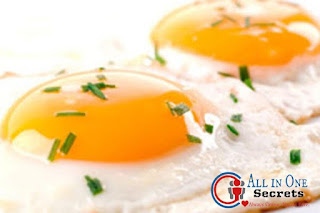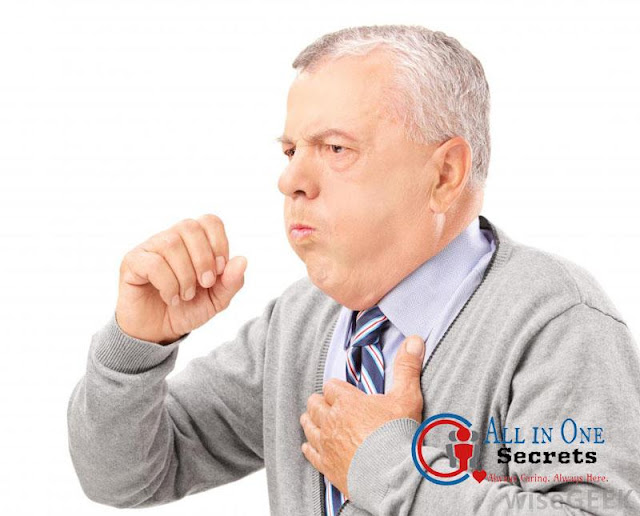They are full of important nutrients, some of which have become very rare in today's diet.
In this article, I'd like to share with you the 10 Health Benefits of Eggs that are incredibly important to your health and your weight loss success. Each of these points has been proven in scientific studies.
10 Health Benefits of Eggs
1. Eggs are Incredibly Nutritious
Eggs are among the most nutritious foods on this planet.
An entire egg contains all the important nutrients needed to grow a small chick out of a cell.
A single, hard-boiled egg contains:
Vitamin A: 6% of the recommended daily amount.
Folic acid: 5% of the recommended daily amount.
Vitamin B5: 7% of the recommended daily amount.
Vitamin B12: 9% of the recommended daily amount.
Vitamin B2: 15% of the recommended daily amount.
Phosphorus: 9% of the recommended daily amount.
Selenium: 22% of the recommended daily amount.
Eggs also includes vitamin D, vitamin E, vitamin K, vitamin B6, calcium and zinc.
An egg consists of 77 calories, 6 g of protein and 5 g of healthy fats.
Eggs also contain other trace elements that are extremely important for our health.
Seriously ... eggs are very close to the perfect food. An egg contains just about all the important nutrients that the human body needs.
If possible, I strongly recommend you to eat organic eggs. These have demonstrably more omega-3 fatty acids and a higher proportion of vitamins A and E (1, 2).
Besides, it is also an ethical question. I personally buy e.g. Eggs only, if I'm sure that the hens had a proper attitude. An organic weekly market or your trusted farm is a good place to start.
Summary:
Whole eggs are among the most nutritious foods we know in the world. They contain nearly every nutrient we need and are one of the best sources of protein for your diet.
2. Eggs have a Lot of Cholesterol but do not Affect Blood Cholesterol
It's true that eggs contain a lot of cholesterol.
An egg contains 212 mg of cholesterol. That's already over half the recommended daily amount of 300 mg.
BUT ... cholesterol through our diet does not affect our blood cholesterol level (3, 4).
The liver produces a large amount of cholesterol every day. If we eat extra eggs now, the liver will simply produce less. It is thus equalized (5, 6).
Each person reacts differently to the consumption of eggs (7):
In 70% of the cases, eggs have no effect on blood cholesterol levels.
In the other 30%, eggs can slightly increase LDL cholesterol in the blood (low-density lipoprotein).
Anyway ... the situation is a bit more complicated. Later in the article, I will go into more detail why this process is even beneficial for us.
Attention: There are also exceptions! Individuals with hereditary diseases such as familial hypercholesterolemia or the gene type ApoE4 have to minimize the consumption of eggs or do without it altogether.
Summary:
Although eggs contain a lot of cholesterol (212 mg per egg), the consumption of eggs in the majority of the population has no influence on the blood cholesterol level.
3. Eggs Increase HDL Cholesterol (the "good")
HDL stands for High-Density Lipoprotein.
It is often referred to as "good cholesterol" (8).
People with high levels of HDL cholesterol are usually at lower risk for heart disease, strokes, and other health problems.
Eating eggs is a great way to raise HDL cholesterol in the blood.
In a 6-week study that consumed 2 eggs daily, HDL increased by 10% (9, 10, and 11).
Summary:
Eating eggs regularly will automatically increase your blood's HDL cholesterol. HDL cholesterol is the "good cholesterol". It reduces the risk of many diseases.
4. One Contains the Important Nutrient Choline
Do you know what choline is right away?
No? Do not worry ... I did not know it for a long time.
Choline is a nutrient that most people do not even know. You have never heard of it.
But it is an incredibly important substance and often linked to or taken up with vitamin B.
Among other things, choline is needed by the body to produce cell membranes and to produce signal molecules in the brain.
Research has shown that 90% of the population consumes less than the recommended amount of choline.
Eggs are an optimal choline source. A single egg already contains more than 100 mg of this important nutrient.
Summary:
Eggs are one of the best choline sources in our diet. This nutrient is incredibly important to our health. Unfortunately, most people do not get enough choline in their diet. Another reason why you should eat eggs.
5. Eggs Alter the "Bad" LDL Cholesterol
LDL cholesterol is considered harmful.
LDL cholesterol is also colloquially known as "bad cholesterol".
Those who have high cholesterol levels usually have too much LDL cholesterol in their blood.
It is known that a high LDL value is directly related to an increased risk of heart disease (12, 13).
What many do not know ... there are several subtypes of LDL cholesterol. This has to do with the size of the individual particles.
There are small, dense LDL particles and there are large LDL particles.
Numerous studies have shown that persons with predominantly small, dense LDL particles also have a higher risk of heart disease ... compared to persons with predominantly large LDL particles (14, 15, and 16).
Although eggs slightly increase LDL cholesterol in some individuals, some studies show that LDL particles change from small and dense to large due to eggs ... which is a very good sign (17, 18).
Summary:
The consumption of eggs alters the composition of the LDL particles. Of small and dense (bad), too big, which means a lower risk of heart disease.
6. Eggs Contain Lutein and Zeaxanthin, Which is good for Your Eyes
One consequence of aging is the slow loss of vision.
There are various nutrients that counteract the degenerative processes that affect our eyes.
Two of them are lutein and zeaxanthin. Two antioxidants responsible for a healthy retina on the eyes (19, 20).
Studies show that a sufficient amount of these two nutrients significantly reduces the risk of cataracts and macular degeneration (the two most common eye diseases) (21, 22, and 23).
Egg yolk contains a large amount of both antioxidants, lutein, and zeaxanthin.
In a study in which about 1 egg yolk was eaten daily over a period of 4 weeks, the blood levels of lutein increased by 28-50% and zeaxanthin by 114-142% (24).
It is also worth mentioning that eggs are also rich in vitamin A. Vitamin A deficiency is the leading cause of low vision worldwide.
Summary:
The antioxidants lutein and zeaxanthin are very important for the overall health of the eyes. They prevent macular degeneration and can protect against cataracts. Eggs contain both of these antioxidants in large quantities.
7. Organic Eggs from Free-Range Chickens Reduce Triglycerides in the Body
Of course, it is not only important what we eat ... it is also important what our food has eaten.
That is also the reason why not all eggs are the same. The nutrient composition in the egg varies depending on what feed the hen got and how it grew up.
Eggs from free-range hens raised with natural feed are significantly richer in omega-3 fatty acids.
Omega-3 fatty acids are known to reduce triglycerides in the blood. This also reduces the risk of heart disease.
Studies have shown that organic eggs with a high omega-3 content are an effective way to reduce blood triglycerides. In a 3-week study, consuming 5 eggs per week reduced triglycerides by 16-18% (25, 26).
Summary:
Organic eggs from free-range hens, which were given natural feed and are not kept in laying batteries, contain a significantly higher proportion of omega-3 fatty acids. Eating more organic eggs is an effective way to reduce triglycerides in the blood.
8. Eggs are Very High in Protein, with all the Essential Amino Acids in the Right Amount
Delicious fried eggs
Delicious fried eggs
Protein is the building material of the human body.
Protein is needed to make all kinds of tissues and molecules. For structural as well as functional purposes.
A high protein diet is hugely important and studies have shown that the recommended amount of protein per day is often set too low.
Eggs are therefore an optimal protein source. A single egg already has 6 grams of protein.
Eggs contain all the essential amino acids our body needs ... and that in the perfect dosage.
Recommendation: Why protein automatically helps you lose weight and lose weight
Regular consumption of eggs helps you lose weight, increases your muscle mass, lowers your blood pressure, and is good for your bones ... just to name a few of the many benefits (27, 28, 29, 30).
Summary:
Eggs contain a lot of high-quality, animal protein (6 grams per egg) and are rich in all the essential amino acids the body needs. Perfect for losing weight and for building muscle.
9. Eggs Reduce the Risk of Strokes
For decades, eggs have been wrongfully vilified.
Because they contain a lot of cholesterol, you automatically assumed that they are bad for your heart.
In recent years, many studies have examined the association between eggs and the risk of heart disease.
In a study of 17 studies with a total of 263,938 participants, no association between egg consumption and heart disease or stroke was found (31).
Other studies have come to the same conclusion (32, 33).
However, one study found that diabetics who eat a lot of eggs are at an increased risk of heart disease (34).
Whether eggs actually increase the risk is not known. These studies can only portray a statistic and not clearly prove that eggs are at fault.
It is also possible that diabetics who eat eggs do not have such a pronounced health awareness.
If you eat more eggs during a low-carbohydrate diet - which is the best diet for diabetics, by the way - the risk for heart disease will be significantly reduced (35).
Summary:
Many studies have examined the relationship between egg consumption and heart disease. No direct connection was detected. Nevertheless, there is evidence that eggs can increase the risk of heart disease in diabetics.
10. Eggs are Very filling and Help to Lose Weight
Eggs are incredibly filling.
They are a very high protein food ... and protein is by far the most macronutrient that feeds you the longest.
Eggs are at the very top of the so-called "saturation index". This index measures the ability of different foods how quickly and for a long time they fill you up.
A study of 30 overweight women showed that satiety lasted longer and subjects ate fewer calories for the next 36 hours if they ate breakfast instead of toast (36).
In another study, over a period of 8 weeks, a breakfast consisting of eggs supported weight loss (37).
Why You Should Eat More Eggs
The studies clearly show that the consumption of 3 eggs per day is absolutely in order.
There is no evidence that it is harmful if you eat more than 3 eggs a day. There are no long-term studies. Therefore, no one can tell exactly how a high amount of eggs affect your health.
Personally, I always eat 3-6 eggs a day and my health has never been better.
Eggs are actually very close to the perfect food.
In addition to all the benefits to your health, eggs are still cheap, easy to prepare, go with almost any other food and taste great.



























